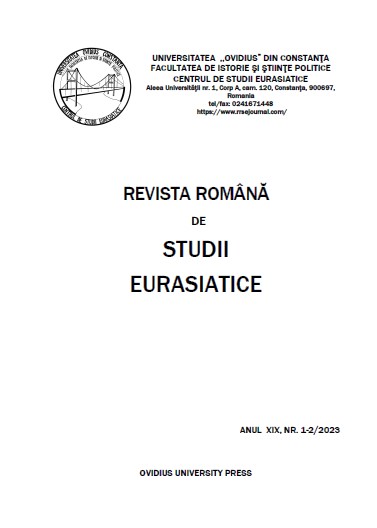THE RUTHENIANS. A COMPARISON REGARDING THE MINORITY-MAJORITY RELATIONSHIP IN FOUR NEIGHBOURING COUNTRIES: SLOVAKIA, POLAND, ROMANIA AND UKRAINE
THE RUTHENIANS. A COMPARISON REGARDING THE MINORITY-MAJORITY RELATIONSHIP IN FOUR NEIGHBOURING COUNTRIES: SLOVAKIA, POLAND, ROMANIA AND UKRAINE
Author(s): Marian OanceaSubject(s): Human Rights and Humanitarian Law, Politics and society, Comparative politics, Ethnic Minorities Studies, Politics and Identity
Published by: Ovidius University Press
Keywords: Minorities; right; Transcarpathia; Ukraine; identity;
Summary/Abstract: This comprehensive analysis delves into the complex socio-political and cultural dynamics of the Carpatho-Ruthenians, a Slavic minority group, across four neighboring countries: Slovakia, Poland, Romania, and Ukraine. The document explores the historical roots, identity debates, and current circumstances of the Carpatho-Ruthenians, highlighting the challenges and peculiarities in each country. In Slovakia, the Carpatho-Ruthenians have made significant strides in cultural and political recognition, particularly post-1989, with increased self-identification and recognition in censuses. The Ruthenian Renaissance organization plays a crucial role in these developments, promoting Ruthenian identity and culture. In Poland, the Carpatho- Ruthenians, identified as Lemkos, face unique challenges due to their dispersed population. The establishment of cultural organizations and events has sparked a revival of Carpatho-Ruthenian culture in Poland, despite the nation's overall ethnic homogeneity. Romania presents a contrasting scenario, where the Carpatho-Ruthenians are often grouped with Ukrainians in censuses, yet they have distinct representation in the Parliament. This situation illustrates the complexity of ethnic identity and recognition within Romania's socio-political framework. Ukraine, with the largest Carpatho-Ruthenian population, shows the most complex relationship. Despite significant numbers in Transcarpathia, Ukraine does not recognize Carpatho-Ruthenians as an independent ethnicity, viewing them as a sub-ethnic group of Ukrainians. This stance contrasts sharply with neighboring countries, hindering the group's cultural and political development. Overall, the document provides a nuanced exploration of the Carpatho-Ruthenians' struggle for recognition and identity preservation amidst diverse national contexts, underscoring the broader themes of minority rights and ethnic identity in Eastern Europe.
Journal: Revista Română de Studii Eurasiatice
- Issue Year: 19/2023
- Issue No: 1-2
- Page Range: 157-172
- Page Count: 16
- Language: English

